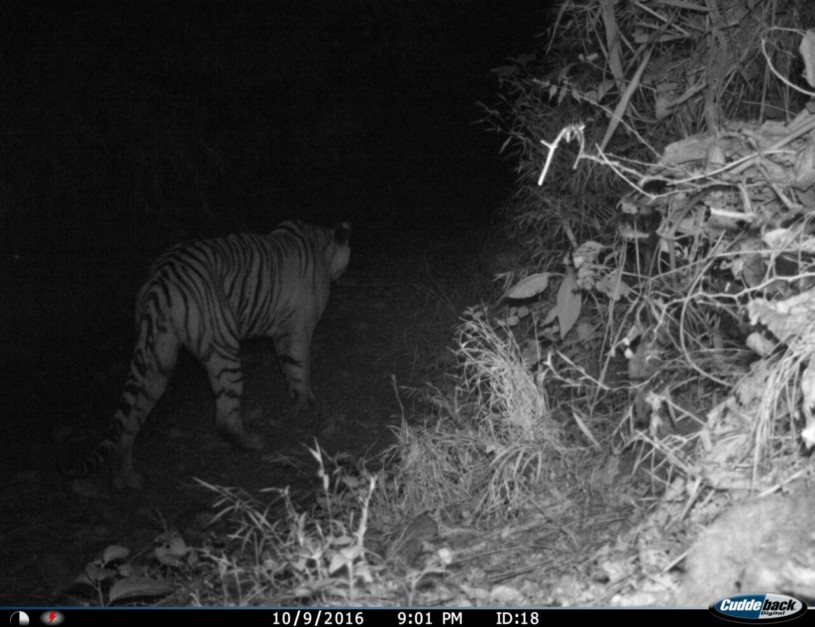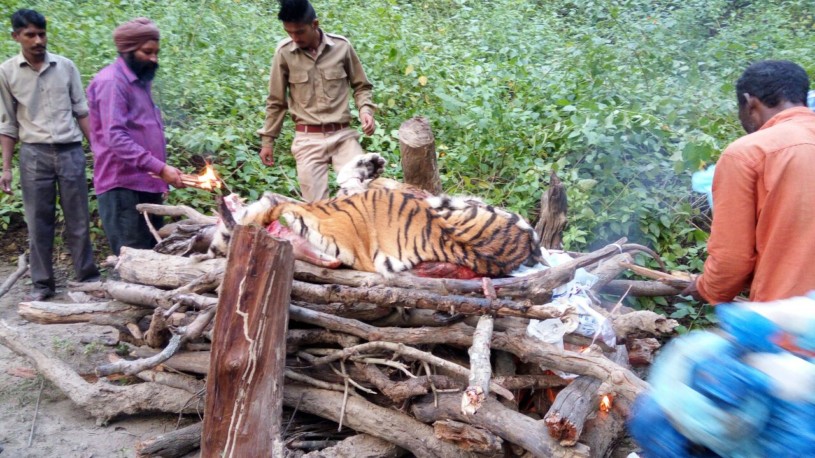By Kushagra Dixit
New Delhi– Parag Madhukar Dhakate, the forest officer who led one of India’s largest and most modern operations to kill a man-eating tigress on the periphery of Jim Corbett National Park, is not a happy man. On Thursday, the jungle was stripped of another big cat which Dhakate had wanted to capture alive.
It took over 45 days, 200 men, 120 camera traps, eight cages, five shooters, four sniffer dogs, three elephants, two night and thermal vision drones and a helicopter — in a confined area of just 20 km sq to track down the six-year-old tigress, which was already sick and injured.

The feline, which became the 101st tiger to die on record this year, was blamed for killing two people and injuring two others in villages around Ramnagar town of Nainital district in September.
She drew her last breath in the same fields where she grew up — towards the park’s southern region. Ten bullets were shot at her, of which three hit her in the head, and the rest in the stomach and left hind leg.
“Killing her was not the only solution. Our preference was to capture her by tranquilising or trapping. Four attempts of tranquilising were made from helicopter, some from elephants and even from the ground, but she was very swift even after being sick,” Dhakate, Conservator of Forests, Uttarakhand, told IANS.
He said that the public outcry was increasing each day as the terror of a man-eater was barring villagers from harvesting their crops.
“We tried our best to get her alive. Had our sole aim been killing, the operation wouldn’t have lasted a week,” he added.
A day before she was killed, the tigress attacked a member of the search team after a non-fatal shot hit her. As per the protocol, her carcass was burned after post mortem.
The tigress weighed merely 91 kg, while an adult tigress normally weighs 140-160 kg. On inspection, several claws and canines were found missing while her other teeth were grinded down. Officials couldn’t explain this, but said that under such conditions tigers often go after humans — the “softest of the soft” targets.
“She was born and brought up in the agricultural landscape. She preferred staying in those areas making it difficult for us to track her down. Sugarcane and long grasses gave her perfect cover,” Dhakate said. He added that there were no records that the tigress ever produced a litter or got pregnant.
The fields where she used to live, now revenue land, are used by farmers to grow sugarcane and paddy. Like many other national parks in India, such areas have become the perfect abode for tigers as they have abundance of water, prey and a supportive habitat.
Night camera images showed that the same habitat she lived in was also shared by a leopard.
“Day by day such revenue lands around forest are being used up for sugarcane and paddy cultivation,” Dhakate told IANS. Such legal inroads often lead to man-animal conflicts.
When the tigress was killed, many villagers celebrated. However, for Dhakate there was nothing to rejoice.
“It was not a matter of celebration for us, but for restoring confidence among the local people. By eliminating one man-eater a generalised negative approach towards the species was avoided,” he said.
He said that wildlife conservation was dependent on the traditional ethos of the local communities which co-exist in wildlife landscape and not in the “fiefdom of scientists, bureaucrats or armchair conservationists on social media,” he said.
India’s oldest national park, Corbett, named after legendary colonial hunter Jim Corbett, last time dealt with man-eaters in 2014 and 2011. Shrinking forests and encroachments by humans make conservationists fear that such phenomena may continue.














